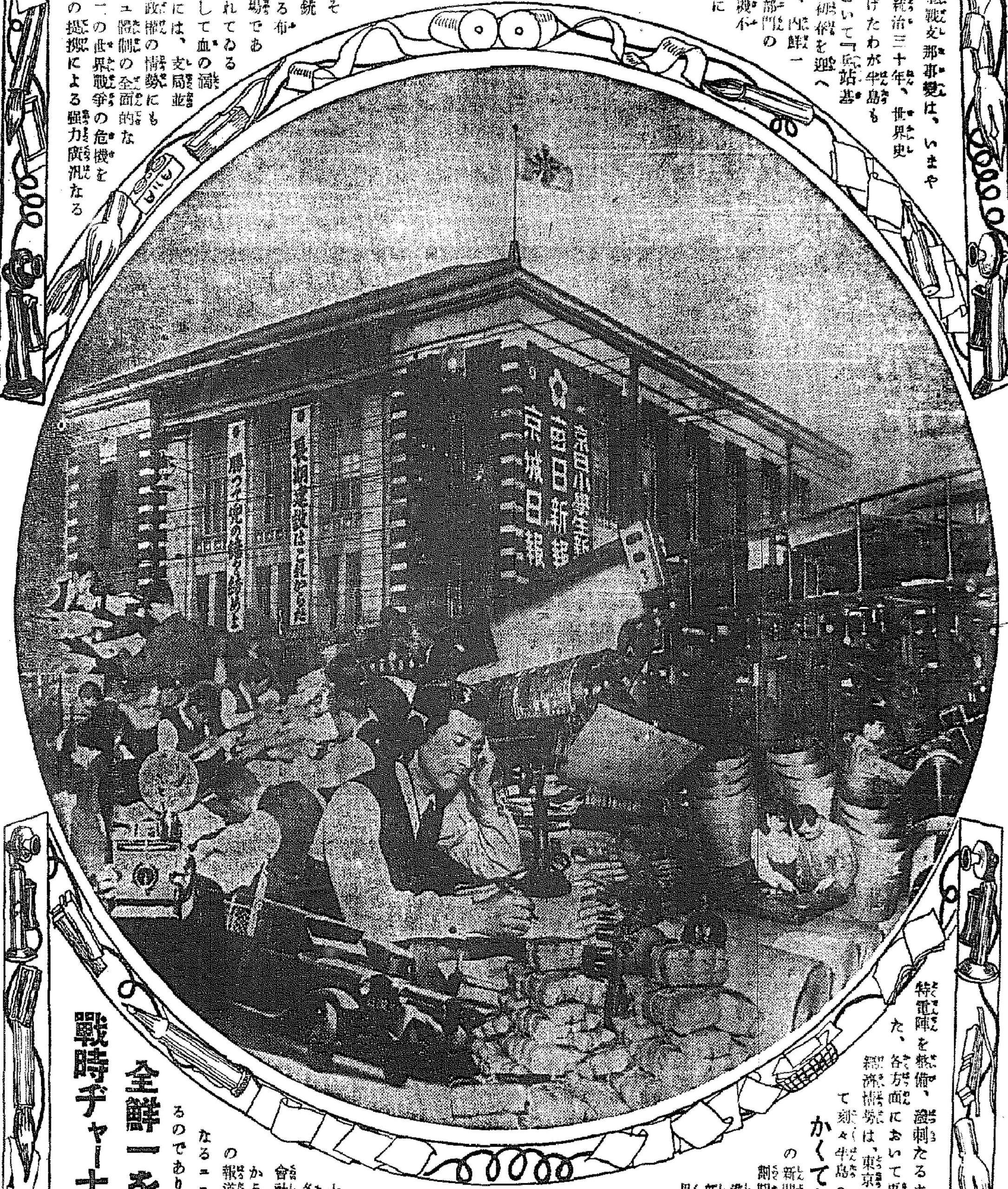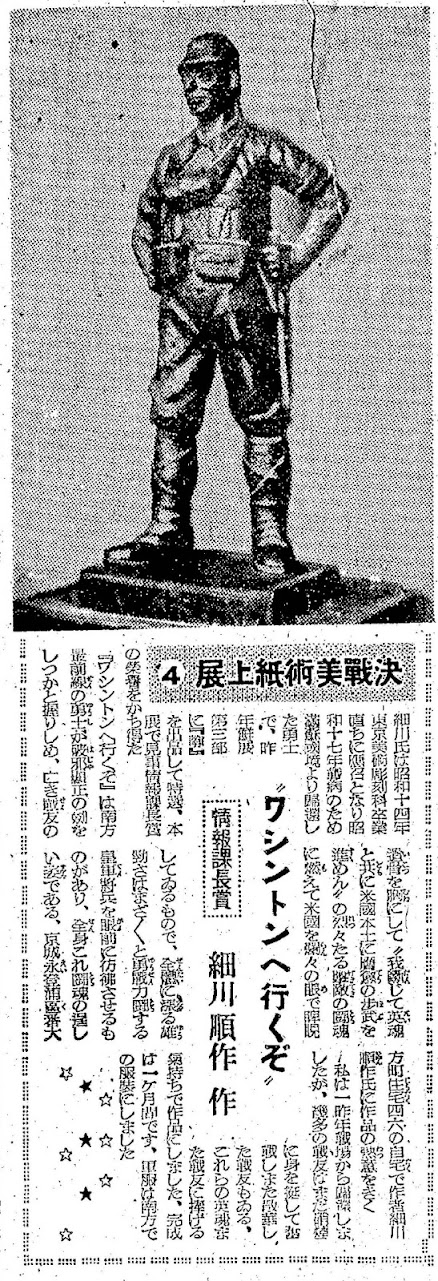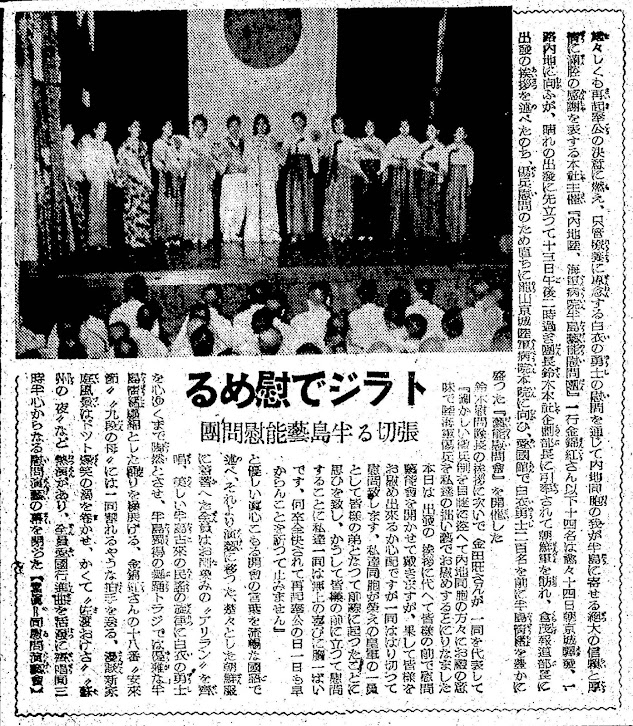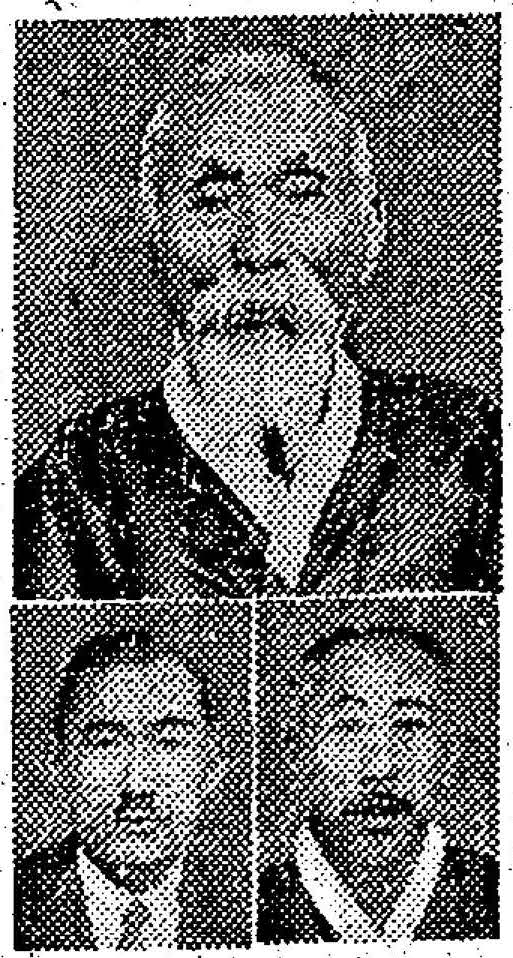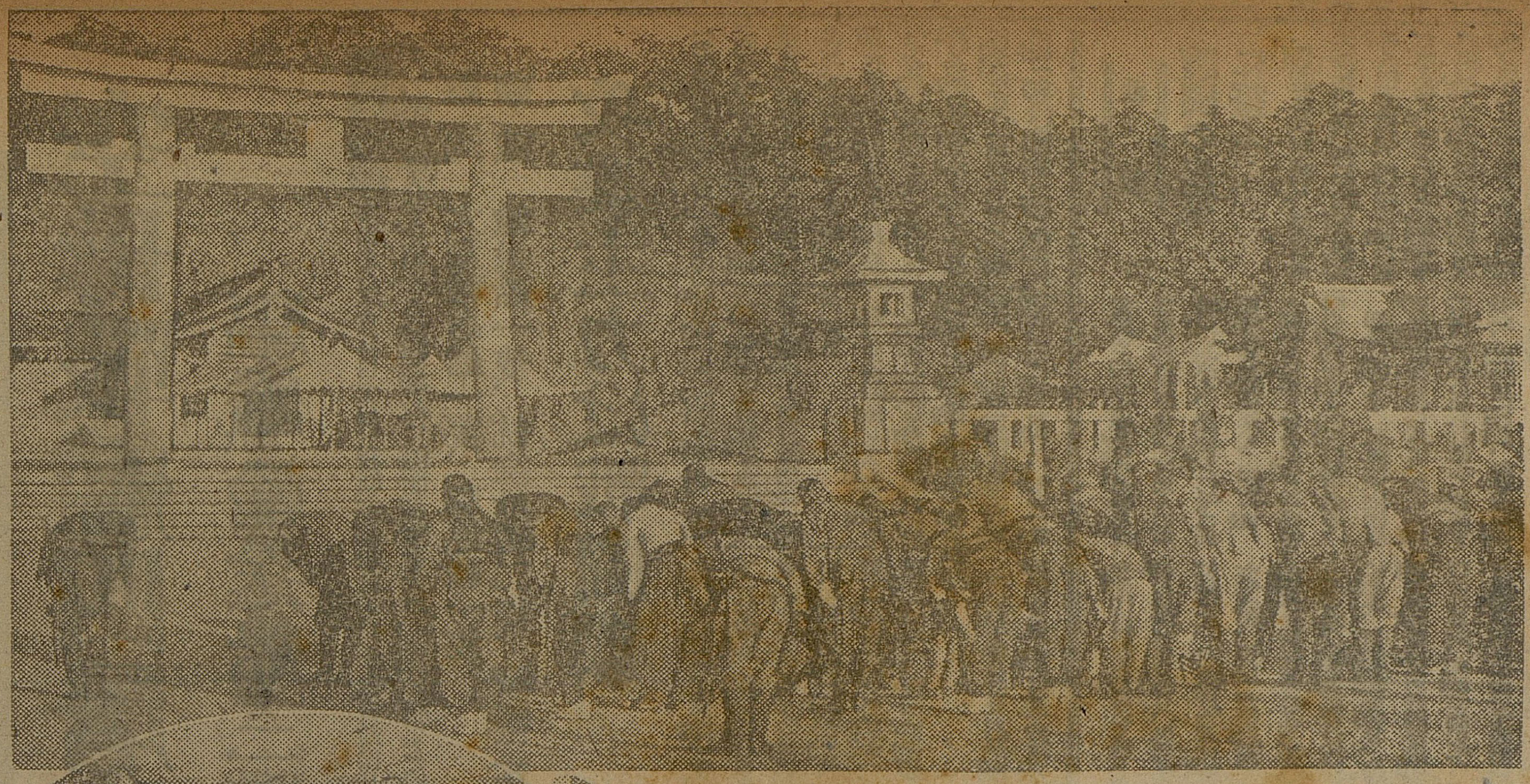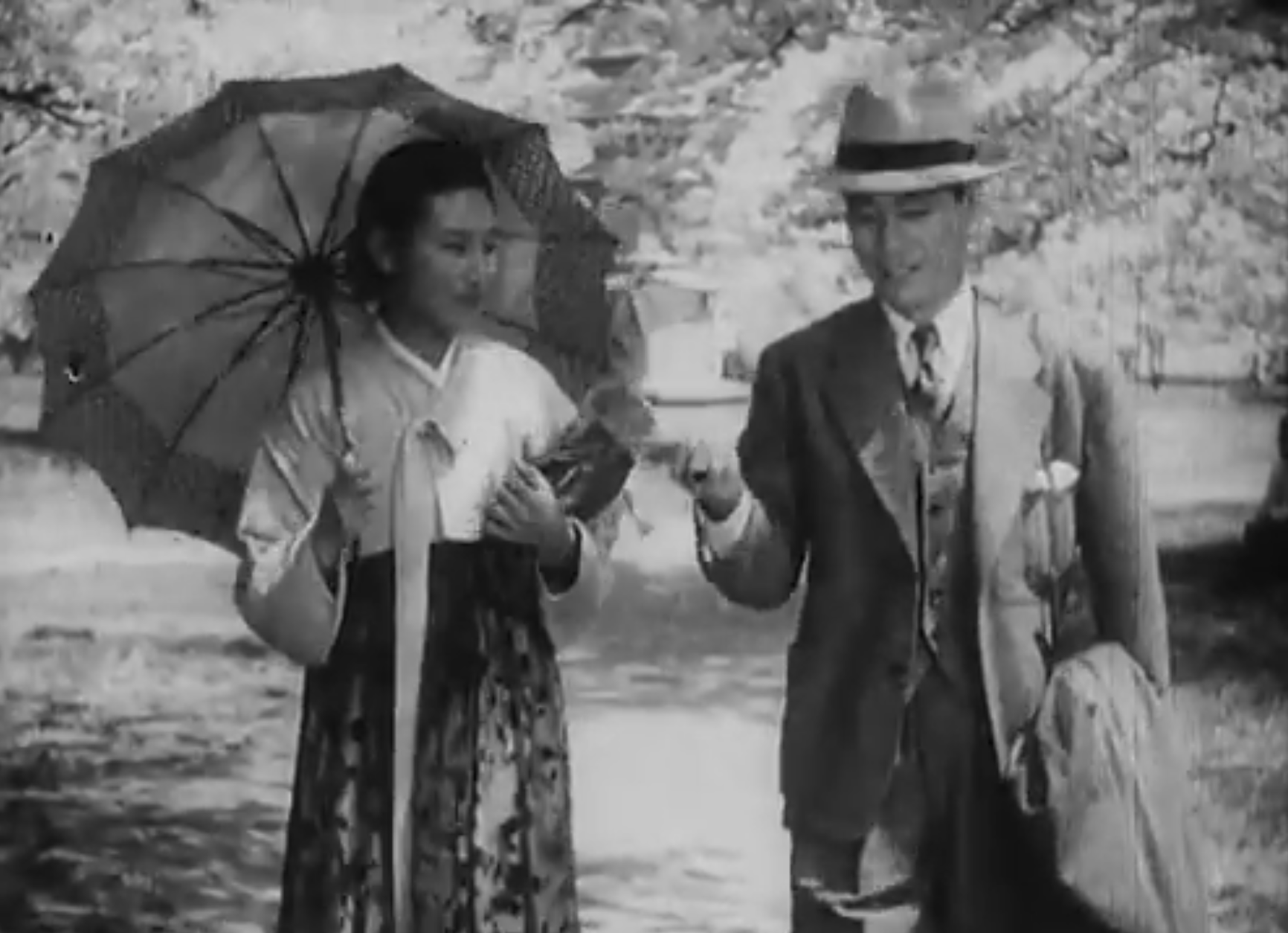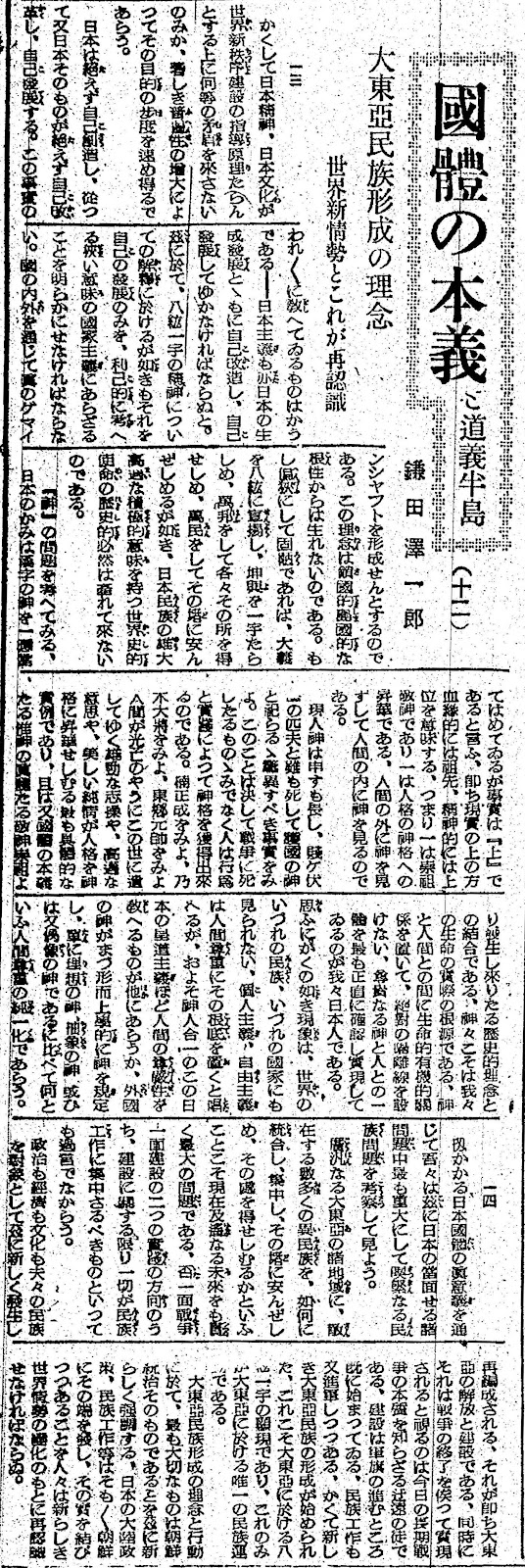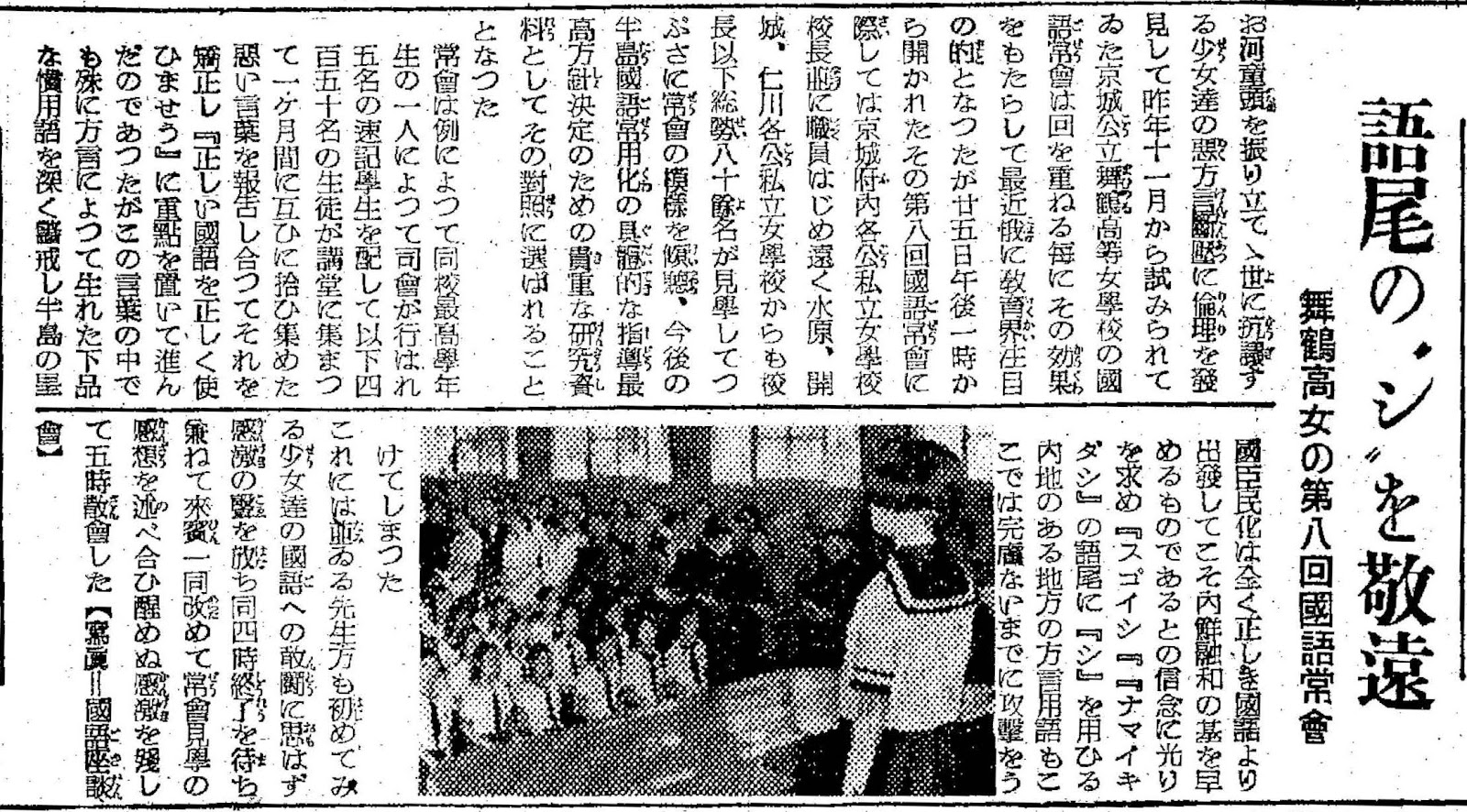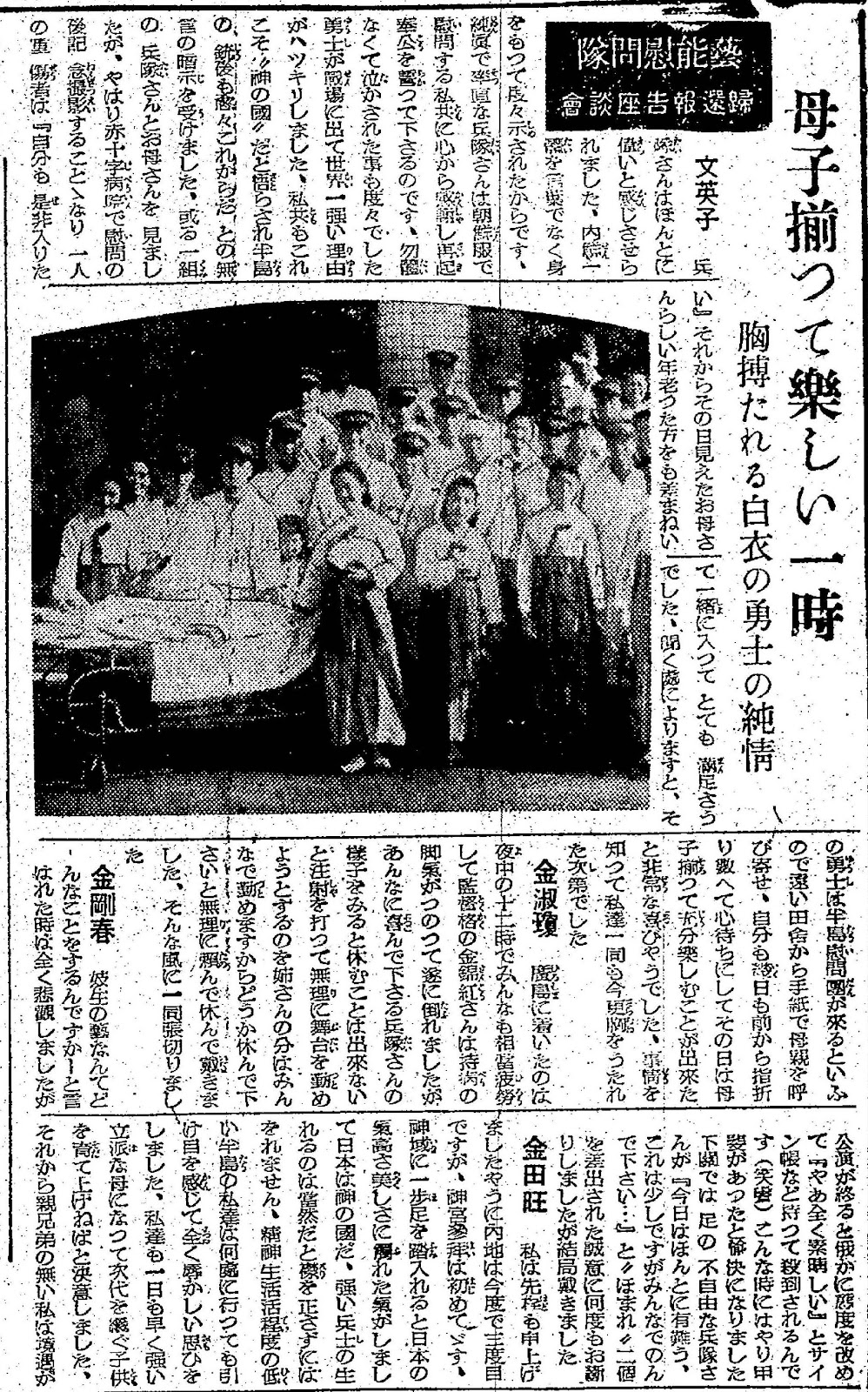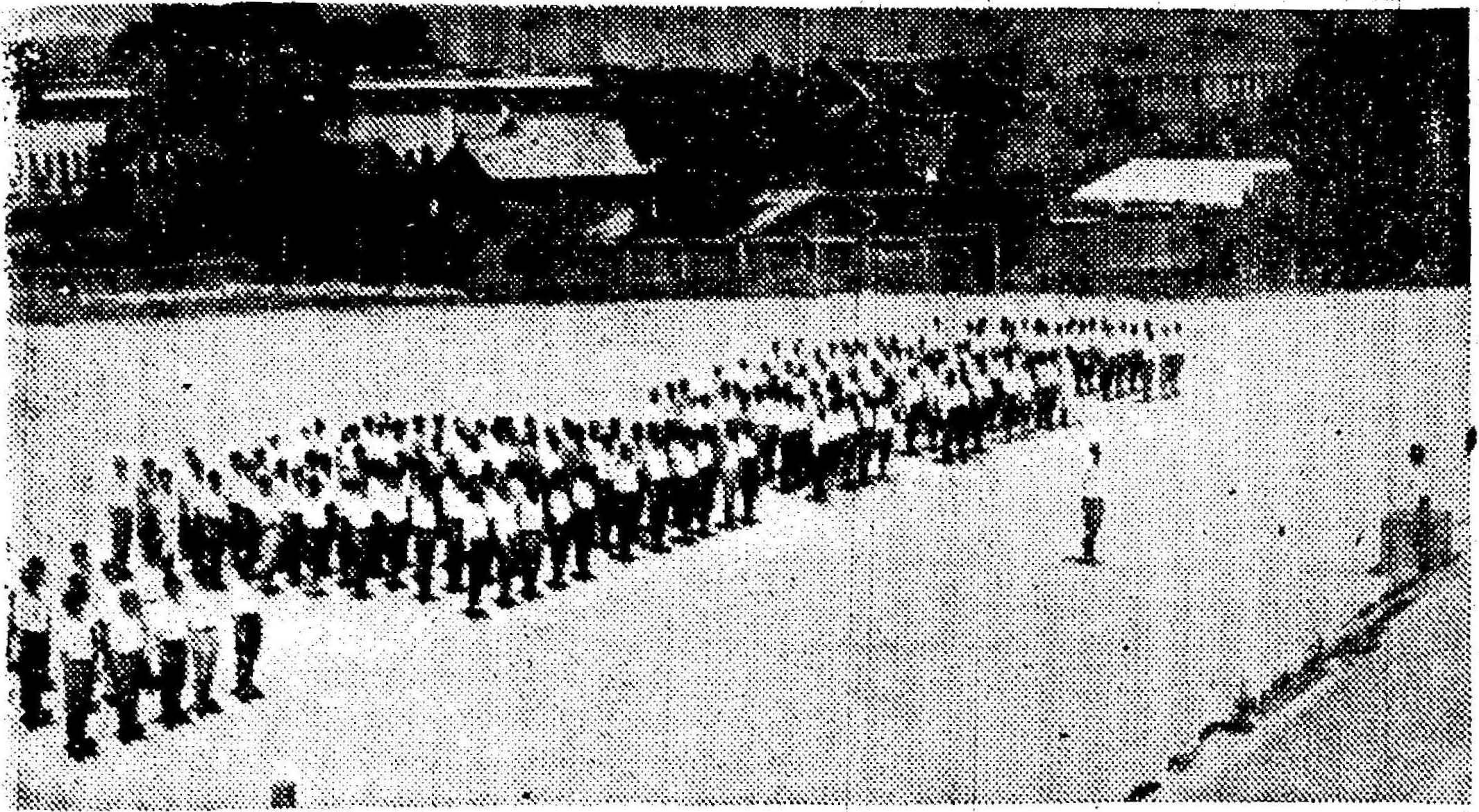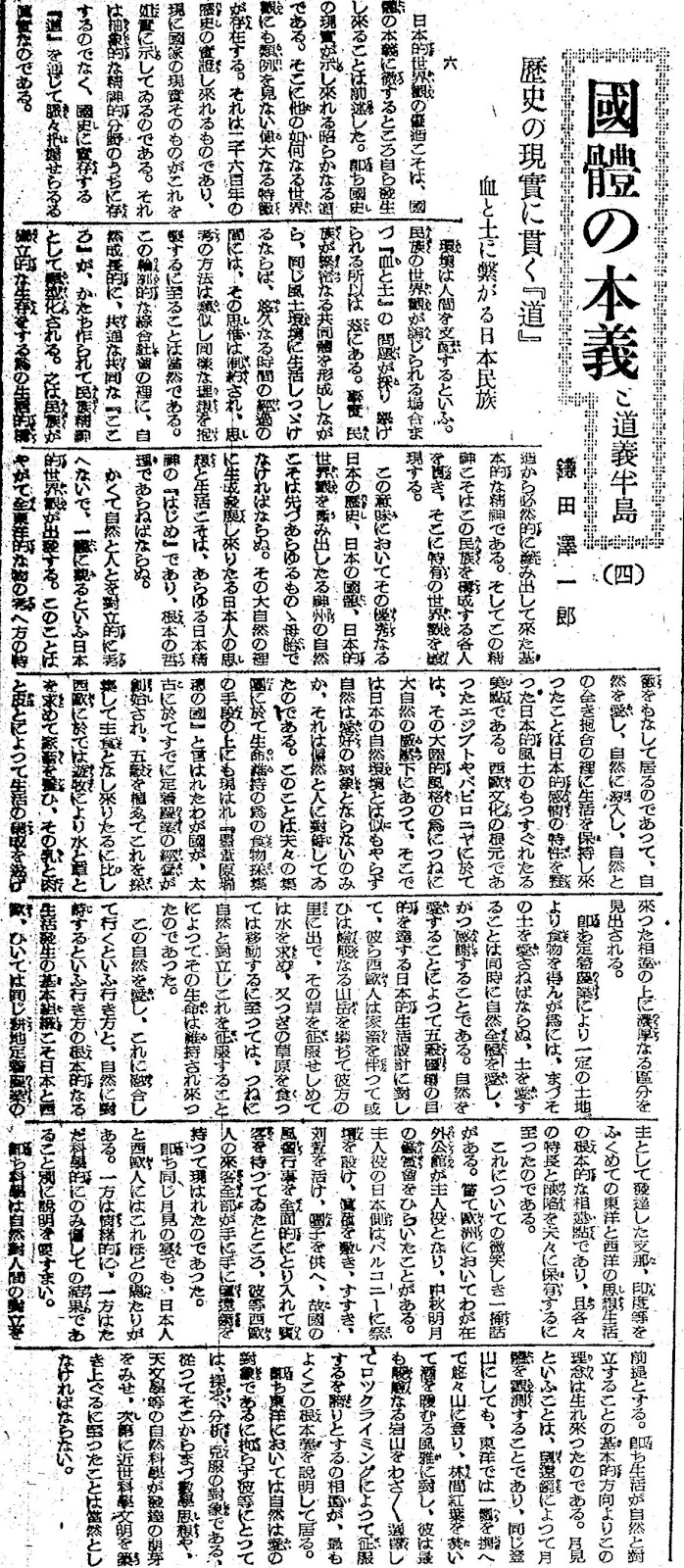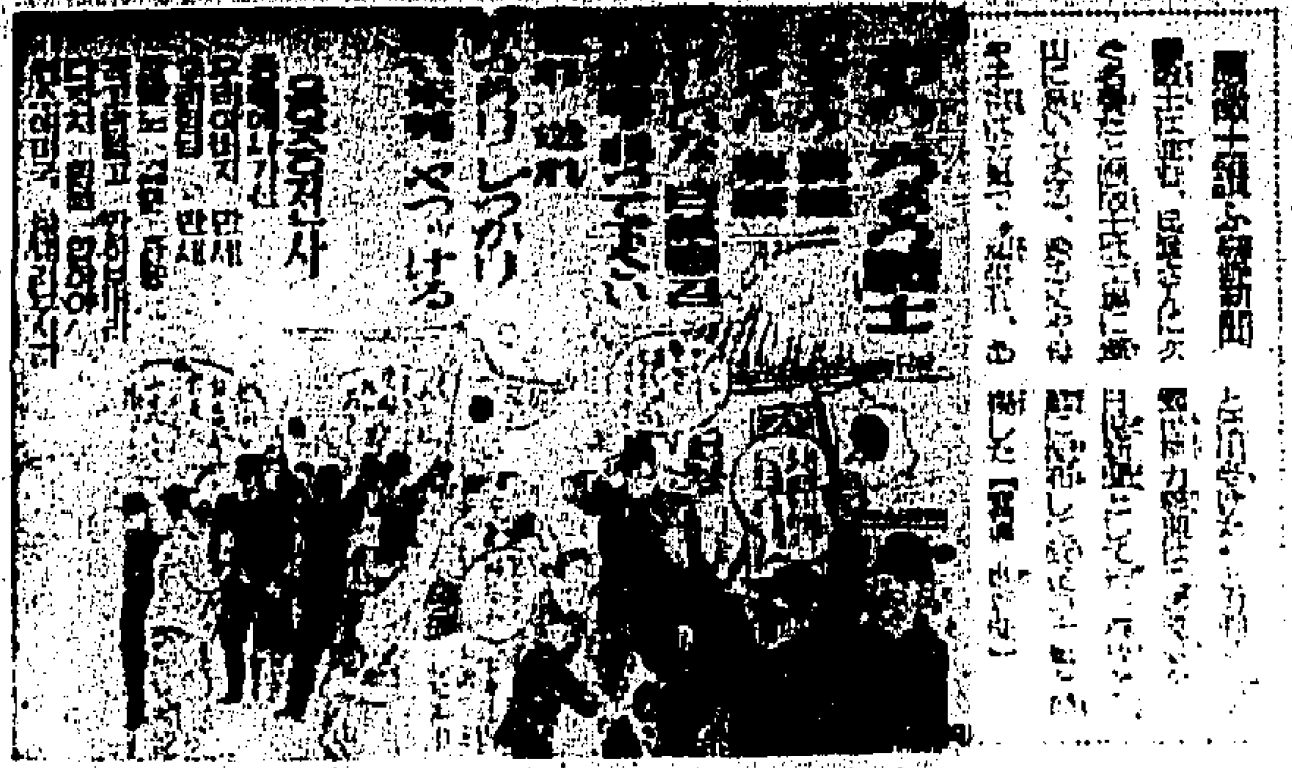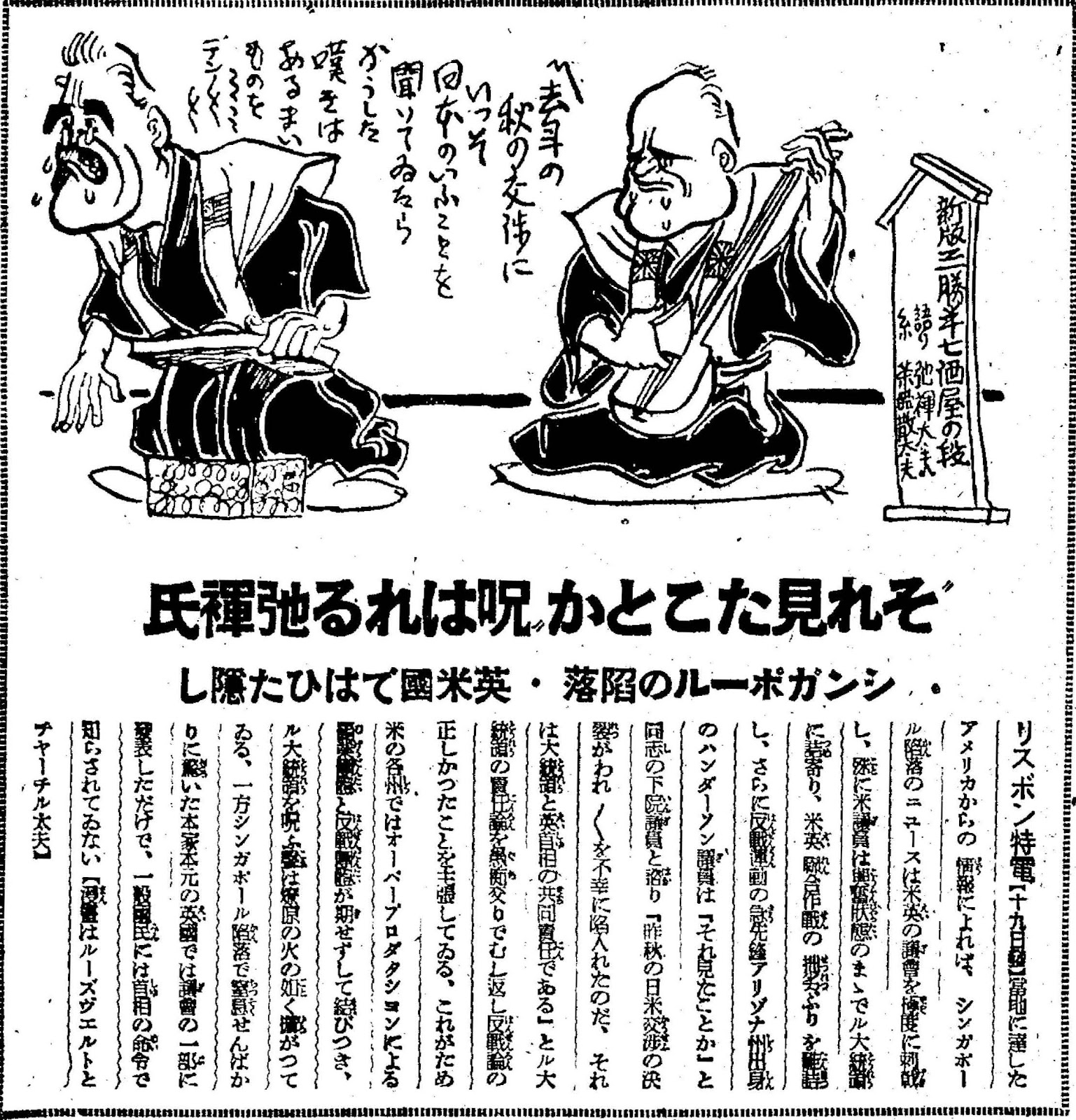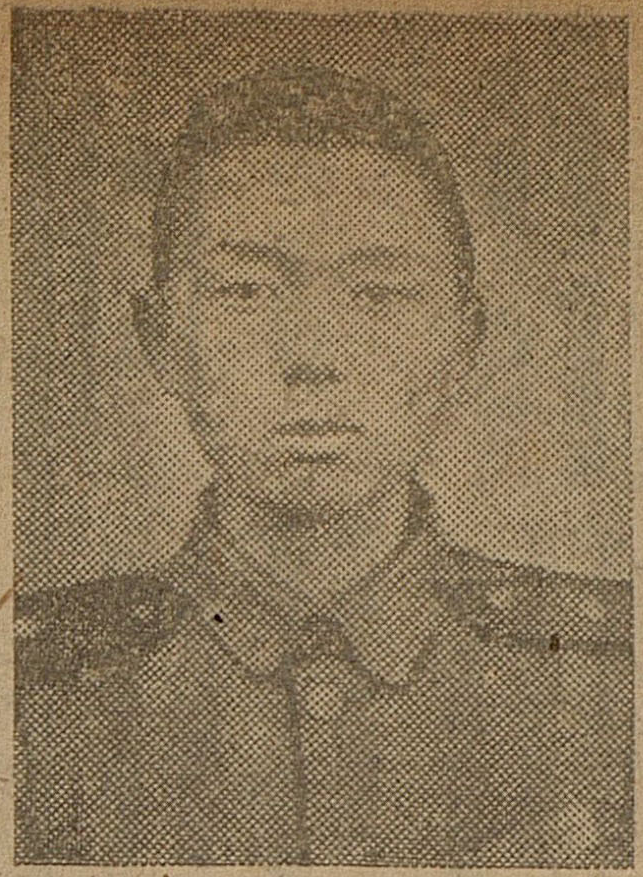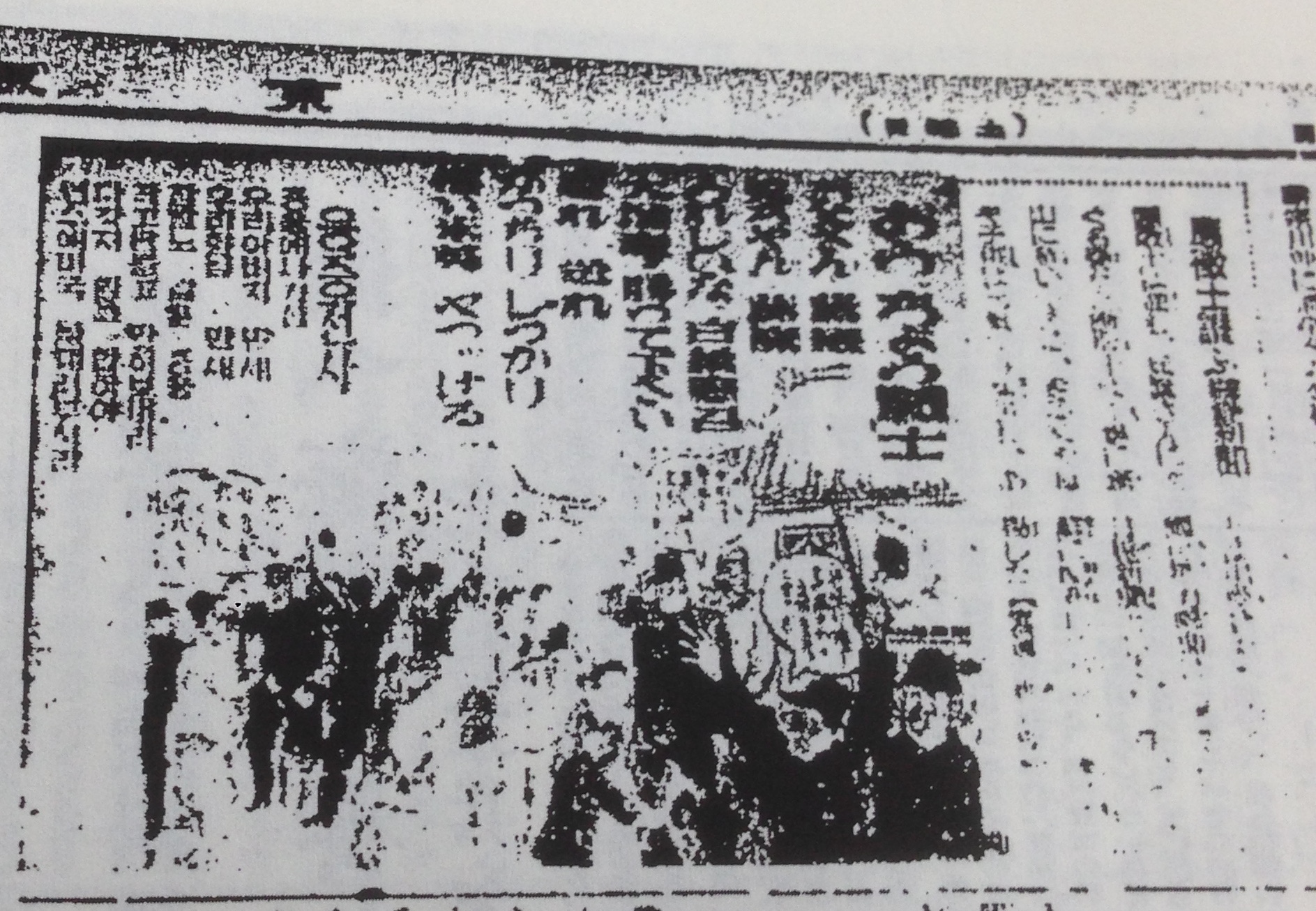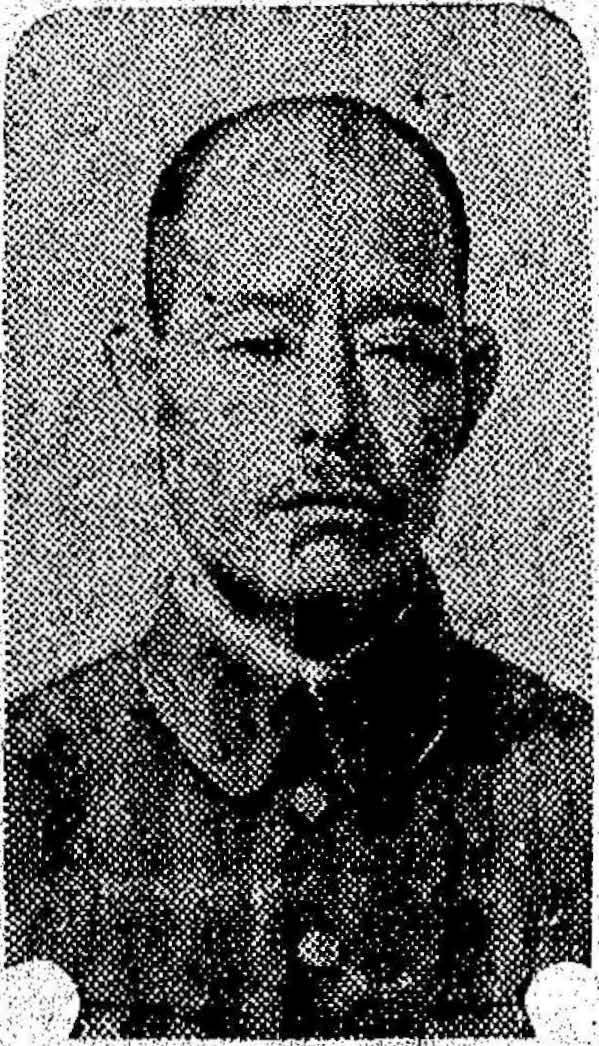
Pro-Japanese Korean colonel (신태영)’s full 1943 speech offering Koreans redemption from their “shame” inherited from ancestors who made them “like cats and dogs” that seek safety and parental attachments over national duty, giving them a chance to volunteer in the Imperial Army
2024-06-29
363
2954
Throughout 1943 in colonial Korea, the main national newspaper of the country, Keijo Nippo (Gyeongseong Ilbo), was filled with war propaganda encouraging young Korean men to enlist in the Imperial Japanese military to fight Britain and America in the Pacific War. This article is just one of many such pieces of wartime propaganda published in 1943, but this speech particularly stands out in that it was written by a prominent pro-Japanese ethnic Korean military official (Colonel Shin Tae-young, aka Hirayama), and it contains a lot of self-hating, explicit language demeaning Korea and Koreans while encouraging young Koreans to become Japanese and volunteer to fight for Imperial Japan.
Hirayama had a long, distinguished in the Imperial Army which started around 1909 and lasted throughout the entire period of the Imperial Japanese colonization of Korea from 1910 to 1945. Interestingly, he went on to become Lieutenant General in the South Korean Army and Minister of National Defense of South Korea in 1952 and was eventually buried with honors in the Seoul National Cemetery, which is a heated point of controversy, as many Koreans believe that he was a traitor who does not deserve to be honored as a Korean national hero. I shared the first part of his memoir in a previous post. This is the second part of his memoir, which was published on November 18, 1943, the day after the first part was published.
Hirayama’s rant can be a tedious read, but let’s hone in particularly on what he says about Koreans. Hirayama accuses Koreans of being complacent and indifferent like spectators toward the war, being hypocritical for demanding more political rights but evading their responsibilities by making excuses for not enlisting, neglecting national duty, and cultivating a servile and selfish mindset. He blames these transgressions on the shame that Koreans supposedly inherited from their ancestors: a culture with a “soft, scholarly lifestyle” that places family above nation, a parental attachment to their children that is so strong it amounts to “animalistic love”, and a concern with safety that amounts to “becoming like a dog or a cat”.
Hirayama weaves in some Korean history by mentioning the Qing invasion of Joseon of 1636-1637 and bringing up obscure historical figures from that event such as Jeong Gwang-gyeong, Yun Jip, and Kim Ryu as examples of corrupt Korean officials who were dishonorable and shameless, as if to imply that modern Koreans inherited their national shame from ancestors like these figures.
Hirayama then offers Koreans a way to redeem themselves and free themselves of this inherited ancestral shame: by volunteering and enlisting in the Imperial Japanese Military, which would instill in them the Japanese spirit and discipline and fully transform them into loyal, pure Japanese people, thereby achieving true Japanese-Korean unification.
Hirayama then makes some threats against Koreans in his rant. He says, “Koreans must realize that their own actions have always led to the downfall of Korea”, as if to preemptively blame the Koreans for the defeat of Imperial Japan, if it happens. Towards the end of the rant, he warns that, if any Korean student has to be forcibly conscripted because he didn’t volunteer, then the honor of Koreans will be completely tarnished. Thus, Koreans are supposedly collectively responsible for their actions as a group, rather than as individuals, so if any Korean fails to volunteer, then all Koreans have to suffer the consequences of the loss of honor because of that one Korean individual’s treacherous actions.
Hirayama denies being bribed by authorities or requested by the Imperial military to publish this speech, but his decades-long career with the Imperial Army and prominent rank seem to indicate that he has already received many favors from the colonial authorities and the Imperial Army for his many years of collaboration.
It’s especially striking how dark and ominous the tone of Part 2 is compared to Part 1, which has more of a personal, heartfelt tone. It’s also interesting that Hirayama identifies himself more as a Korean in Part 2, and identifies himself more as a Japanese in Part 1. The two parts of the memoir seem to depict a complex man with many inner contradictions and conflicts, straddling and attempting to reconcile two different cultures and ethnicities: Korean and Japanese.
Note: “Yamato people” refers to ethnic Japanese people throughout the memoir.
[Translation]
Gyeongseong Ilbo (Keijo Nippo) November 18, 1943
The Future of Korea Depends on the Students (Part 2)
Memoir by Imperial Army Lieutenant Colonel Hirayama Hoei, an ethnic Korean
Decide Without Hesitation!
The only way forward is to become loyal and good Imperial subjects
As the Manchurian Incident evolved into the China Incident, the sincerity of Korean patriotism was recognized. As a prerequisite for the implementation of the conscription system in Korea, the special volunteer soldier system was introduced, and many volunteers have already participated in actual combat. These special volunteers have demonstrated their true value as members of the Imperial Army, proving themselves equal to the pure Yamato (Japanese) people. As the Greater East Asia War progresses, the number of volunteers has dramatically increased each year. The patriotism of the Korean people as a whole has reached its peak. As a result, the long-standing desire of Koreans for the implementation of the conscription system has been realized with the promulgation of the relevant laws in the midst of the Greater East Asia War. This system is scheduled to be implemented starting next year, with compulsory education set to commence in 1946.
When comparing this to the state of internal Korean-Japanese relations from the time of the annexation of Korea until very recently, it must be recognized that this represents a rapid and significant transformation for Korea. We must be confident that the foundation for Japanese-Korean unification has already been established. In times of peace and security, there were calls for the implementation of compulsory education, the establishment of a conscription system, and the granting of political rights. However, when faced with a national crisis of life and death, there were those who resorted to pointless arguments to evade their responsibilities. Can Koreans, both now and in the future, truly live their lives this way?
Today’s Greater East Asia War is a decisive battle where the entire Greater East Asian population, risking their lives, is fighting against the long-standing enemies of three hundred years, the United States and Britain. The billion people of Greater East Asia are fighting with all their heart and soul. Can Koreans alone remain complacent and indifferent like spectators? If the Empire loses this battle, the billion people of Greater East Asia will face extinction. Can Koreans alone believe that they can prosper?
Given the current situation, all people within the Greater East Asia Co-Prosperity Sphere, regardless of their location or circumstances, must transcend all emotions and personal interests. Without any excuses, this is the autumn when both the old and young, men and women, must rise, unite, and dedicate their lives to the destruction of the United States and Britain. It is truly disheartening to see some people making petty excuses regarding the newly promulgated special volunteer temporary recruitment regulations. At the very least, it makes me feel deeply ashamed to have been born in Korea. What a pitiful state this is!
Modern Koreans, especially qualified students and their parents, siblings, and other family members, should be genuinely fueled by patriotism and deeply understand the current situation. They should truly think about themselves and their families, be aware of the shame of Korea, and awaken to their mission as Japanese people. If this is the case, regardless of the content of the authorities’ talks on the laws, whether it is in the form of voluntary enlistment or forced conscription, whether they are to be officers or ordinary soldiers, they should not be concerned with such trivial matters. Rather, they should compete against each other to be the first to join the military ranks.
Moreover, the current special temporary recruitment of volunteers is an unprecedented and significant favor for Korea, providing absolute light and hope for Korea’s future. Let us reflect deeply on this together. How much do you think the Imperial Army is mobilizing in the current Greater East Asia War? Even considering just the occupied territories, it is common sense to imagine that the number reaches millions. Despite moving such a large force, it is clear that there are still ample human resources available, considering that, as in peacetime, only able-bodied men aged twenty are required to serve in the military.
In such circumstances, what difference would it make to mobilize five or six thousand Korean students? It is common sense that moving a large force requires a significant number of officers. Students from specialized schools and above in mainland Japan enter the army as officer personnel. If Korean students who have studied alongside them are left behind, it would indeed be an insult to Koreans and a form of discrimination against Koreans by the Japanese. Furthermore, most of the students from specialized schools and above, who are set to be conscripted next year, and their families are part of the intellectual and leadership class in Korea.
By becoming officers in the army, these individuals will become the forerunners for the thousands of soldiers who will be conscripted and join the army next year, rapidly achieving Japanese-Korean unification. Moreover, only by receiving military education can these core members truly grasp the Japanese spirit and bear the significant responsibility of leading the future of Korea.
The outcome of the Greater East Asia War has already been determined. An absolutely impregnable strategic stance has been established. No matter how much the United States and Britain struggle, they cannot possibly reverse this overwhelming trend. It does not matter what happens to Italy or if the Soviet Union confronts us; such matters have no bearing on the outcome of the Greater East Asia War. Victory is undoubtedly ours.
Our belief in inevitable victory is unshakable. When the Empire achieves victory, what will those Koreans who have adopted their current attitude have to say for themselves? They will likely find no place to set foot within the Greater East Asia Co-Prosperity Sphere. Conversely, can they now really turn to the United States or Britain? Koreans must realize that their own actions have always led to the downfall of Korea.
Moreover, if even one person fails to volunteer and is looked down upon, do you think your juniors will be able to study alongside students from mainland Japan without feeling disgrace? Do you believe that such disloyal Koreans deserve higher education beyond the level of specialized schools? Those hesitant to volunteer have various complicated reasons. While there may be some truth in these reasons, the fact remains that if modern Koreans truly awaken to the current situation and willingly dedicate their lives to the Empire, these issues should soon be resolved as a natural consequence. And if, after displaying such loyalty as Imperial subjects, these issues remain unresolved, then it would be appropriate to make demands openly.
In any case, the survival of Korea lies in the hands of Koreans themselves. The path that Koreans must take should be paved by Koreans themselves. The reason I am speaking out so passionately is not because I have been requested by the military or bribed by the authorities. It is simply because, as one of the Emperor’s subjects and particularly as a Korean, I cannot remain indifferent in the face of this situation. I was born in Korea and am well acquainted with Korean circumstances. When I dissect the psychology of those who are hesitant to express their willingness to volunteer, I can assert without hesitation that their various excuses are merely pretexts to avoid volunteering.
Historically, Korea has been characterized by an excessively misguided sense of familial attachment. Apart from the modern youth, anyone who is older will likely be familiar with the Qing Invasion of Joseon. This major event in Korean history occurred 308 years ago. Qing troops invaded Korea, and the king, along with his high officials, retreated and took refuge in Namhansanseong Fortress. The Qing troops besieged the fortress for forty-five days, placing Korea in a dire crisis of survival.
In such a national emergency, there was not a single person who earnestly tried to resolve the difficult situation. Arguments and debates ensued, with everyone stubbornly adhering to their own opinions, resulting in mere verbal conflicts. Jeong Gwang-gyeong, the Seungji (a high-ranking official), upon hearing that his elderly father’s place of refuge was attacked by the Qing troops, submitted his resignation, saying, “My mind is in chaos, my spirit is already scattered, and I am unable to fulfill my duties,” and he returned home. Vice Chancellor Yun Jip, an extreme advocate of war who even attempted to kill a peace advocate, also lost his composure when he heard that the enemy had invaded Namyang, where his grandfather, wife, and siblings had taken refuge. He claimed, “I have lost my mind, my senses are confused, I have lost my sanity, and I cannot perform my duties,” and requested to be relieved of his position.
An extreme example is the then Prime Minister and Chief of Staff, Kim Ryu. The queen had taken refuge on Ganghwa Island, and despite the king being worried about the lack of military preparations and struggling day and night with war expenses and provisions, Kim Ryu‘s private residence was guarded by government troops. His wife traveled around in a sedan chair, and his wealth was said to amount to seventy cartloads. This was the behavior of the nation’s prime minister. He placed his own interests above those of his lord, his family above the nation. There was neither national honor nor shame in such conduct.
I do not believe that all Koreans are like this, nor do I think that the Korean spirit is inherently this way. As history has shown, Koreans possess a sense of righteous indignation and a latent spirit to live for a noble cause. However, years of a soft, scholarly lifestyle have ultimately led to a neglect of national duty and the cultivation of a servile and selfish mindset, which has persisted to this day. Modern Korean parents have a tendency to rely excessively on their children. What parents expect from their children is the eternal continuation of their lineage. The meaning of eternal continuation is not only the flourishing of descendants and the unbroken continuation of the lineage, but it must also naturally include the preservation of the family’s honor.
However, today’s Korean parents and grandparents are filled with the desire to rely on their descendants as they age. They are not content unless they keep their children and grandchildren close, like flowers to be admired, always under their care. If a child tries to engage in any manly endeavor, they are immediately stopped and led into passivity and retreat. It is hard to understand the mindset of parents who have children merely to rely on them in old age and to be taken care of by them. It is truly a disgraceful and laughable lack of spirit, something to be despised. Parents and grandparents cannot live forever, but the lives of their descendants are long. Parents should abandon their selfish wickedness and be content with praying for the future prosperity of their children.
Unlike the feudal era of the past, especially in modern times when the world is the stage, what do you intend to achieve in a tiny place like Korea? The love of parents who want to keep their children attached to them is something even dogs and cats possess. Humans should not be drowned in such animalistic love. Filial piety to parents is not a duty or a law; it is a morality based on natural reason. It must arise from the heart, without the need for parental demands. Filial piety is the foundation of human morality. However, being in perpetual attachment to one’s parents is not the entirety of filial piety.
Modern young men, break away from the old ways! Your stage is vast and wide open. Break down outdated customs, and with firm determination, persuade your parents and grandparents, and boldly seize this once-in-a-lifetime opportunity. The fate of success or failure rests on your shoulders.
Some have said that they will not enlist even if conscripted. What a despicable and shameful mindset! Are you content to be safe, even if it means being trampled, kicked, or becoming like a dog or a cat? Do you not understand the meaning of conscription? Being conscripted does not necessarily mean you will be working only in Korea or mainland Japan. Why would conscription be necessary in places like Korea and mainland Japan, which have such poor resources? Even if conscripted, you will inevitably go to the front lines and work alongside brave soldiers. You will go to the battlefield, whether you are fighting with swords and guns or working with shovels, hammers, and pickaxes. You must also be prepared to face enemy air raids. You will need to receive the baptism of artillery fire from the enemy. Whether you die gloriously as an Imperial soldier who does not know when he will die, or die as a forced conscript, which is more honorable? If even one forced conscript emerges among Korean students, the honor of Koreans will be completely tarnished.
Humans are living beings who live by conviction. Where there is conviction, there is effort, hope arises, security accompanies, and there is joy. Our only path is to dedicate our lives to serving the Emperor and the nation as loyal Japanese subjects. We must firmly hold this conviction. It is absolute and unconditional. The time is imminent. Let us decide quickly and without hesitation.
[Transcription]
京城日報 1943年11月18日
朝鮮の将来は学徒に懸る(下)
半島出身陸軍中佐平山輔英 (手記)
躊躇なく決心せよ
唯一途、忠良の臣民たれ
一面満州事変より支那事変となるに及び朝鮮人の愛国の至誠が認められ、朝鮮に於ける徴兵制度実施の前提として特別志願兵制度が実施せられ、既に幾多の志願兵が実戦に参加しているのであるが、これ等特別志願兵がよく皇軍の一員としてその真価を発揮し純粋大和民族と同等遜色がなきのみならず大東亜戦争に及び逐年志願者の数も激増し、朝鮮人全体の愛国の熱も最高調に達していることを認められたので、我等朝鮮人の多年の宿望たる朝鮮に於ける徴兵制度実施に関する法令が大東亜戦争の真最中に発布せられて、明年度より実施の段取りとなって居り、続いて義務教育の実施も明後昭和二十一年度に控えるようになったのである。
之を韓国併合当時から、極めて最近までの内鮮関係に較べて見ると朝鮮に取っては急速なる一大変革であって内鮮一体の基礎は既に確立されていると確信せねばならぬ。無事太平の時にはやれ義務教育を実施してくれ、徴兵制度を布いてくれ、やれ参政権を与えてくれなどと得手勝手な熱を吹いて居りながら、いざ国家の危急存亡の一大危局に直面すると何の彼のと屁理屈を言い出して、自己の責任を遁れようとしている。こんなことで果して現在及び将来の朝鮮人が人生として生き抜くことが出来るであろうか。
今日の大東亜戦争は三百年来の宿敵米英との大東亜全民族の身命を賭しての一大決戦だ。大東亜十億の民族は理屈抜きに心血を注いで闘っているのだ。独り朝鮮人のみが恬然として安閑として傍観的態度を取っていられようか。此の一戦に於いて若しも帝国が負けたならば、大東亜十億の民族が滅亡するのである。独り朝鮮人のみが繁栄し得るものと信じていられるであろうか。
今日の情勢は大東亜圏内に於ける民族である限り、その處と事情との如何に拘わらず、凡ての感情、凡ての個人的利害関係を超越し、凡ての理屈を抜きにして老いも若きも女も男も蹶然起ち一致団結して米英撃滅の為に身魂を注いで闘い抜くべき秋である。今回発布せられた特別志願兵臨時採用規則に就いても動もすれば屁理屈を言い度がるものが相当にあるのを見るのは誠に慨嘆に堪えないことであって、少くも私自身が此の朝鮮に生れたことが恥ずかしくて堪えられないのだ。何という情けない状態であろう。
現代の朝鮮人わけても適格者たる学徒並びにその父母兄弟姉妹にして真に憂国の真情に燃え、現時局を深く認識し真に一身一家を思い、朝鮮の恥を知り、日本人としての使命に目覚めて居るとしたら、法令に関する当局の講話の内容がどうあろうと、自由志願の形式であろうと強制であろうと、幹部要員ではなく唯の一兵であろうと、そんな些末なことに頓着することなく、先を争って軍門に投ずべきではないか。
況や今回の特別志願兵の臨時採用が朝鮮のためには画期的一大恩典であって朝鮮の将来に絶対なる光明と希望とが与えられているに於いておやである。お互いによくよく反省して見ようではないか。今の大東亜戦争に於いて皇軍は一体どの位動いていると思うのか。占領地域のみを以て考えて見ても幾百万という数に上っていることは常識として想像着くことであろう。その大兵を動かして居りながら、人的資源は未だ未だ十二分に余裕のあることは、平時と同様満二十歳の壮丁に限り兵役に服している現実から考えて見ても明らかではないか。
そのような実情に於いて朝鮮学徒の五千や六千を駆り立てて見た所で何の足しになろう。大兵を動かすのには大量の幹部を必要とすることは常識だ。内地人専門学校以上の学徒はその幹部要員として入営するのだ。今まで机を並べて学んで居った朝鮮学徒が取り残されることは是こそ朝鮮人侮辱であり内鮮差別ではないか。而も明年度に徴兵実施を控えている専門学校以上の学徒並びにその学徒を出したる家庭と言わば例外は別としてその大部分が朝鮮に於ける有識階級であり、指導階級にあるのだ。
それらのものが陸軍の幹部となることに依って明年度徴兵実施に伴い入営する幾万の兵の楔となり内鮮一体の実を急速に成し遂げ得るのみならず、是れ等中堅層のものが軍隊教育を受くることに依ってのみ真に日本精神を把握し将来の朝鮮を背負って起ち得るところの重大なる責任があるのだ。
大東亜戦争の勝敗は既にきまって居る。絶対不敗の鉄壁の戦略態勢が完成されているのだ。米英が如何に藻掻いても此の大勢を挽回することは絶対に出来ない。伊太利がどうなろうとソビエトロシアが立向かって来ようと、そんなことは大東亜戦争の勝敗に何等の影響もない。勝利は正に此方のものだ。
必勝の信念は牢固であるのだ。帝国が戦勝の暁に於いて今日の態度を取った朝鮮人がどの面下げてものを言わんとするのか。恐らく大東亜圏内に於いては足を容るる場所もないであろう。それかと言って今更米、英に走ることが出来ようか。朝鮮を滅亡に導くものは、常に朝鮮人自体であることに気付かなければならぬ。
そればかりではない。一人でも志願に漏れたものが侮った場合諸君の後輩が恬然として内地学徒と机を並べて勉学が出来ると思うのであろうか。又斯くの如き非国民の朝鮮人に専門学校程度以上の高等教育の必要があると思うのであろうか。志願を渋るものの内には種々な込み入った理由を持って居る。それらの理由には反面の真理を認めぬこともない。然し今日の朝鮮人が真に時局に目醒め喜んで身命を皇国の為めに献ぐるに於いては当然の帰結として間もなく解決の出来る問題であろう。又斯くまで皇国臣民としての忠誠を献げて尚且つ解決が着かなかったら、その時こそ堂々と要求し得ることではないか。
何れにしても朝鮮を生かすものは朝鮮人自らの手にあるのだ。朝鮮人の進むべき道は朝鮮人自らが拓くべきではないか。自分が斯くの如く絶叫する所以のものは、何も軍部の依頼を受けたのでもなければ、将亦当局に買収されたのでもない。唯唯皇民の一人でありわけても朝鮮人の一人として此の状態を見ては安閑として居られないからに過ぎないのだ。自分は生を朝鮮に享け朝鮮の事情を能く知っているものの一人として志願の意志を容易に表明しないものの心理を倶さに解剖してみると、色々な屁理屈は志願を遁れんとする口実に過ぎないということを断言して憚らないのだ。
由来朝鮮には甚だ誤れる家庭的執着心が濃厚にある。丙子の胡乱と言えば、現代の青年は別として少しくも年取った人は皆知っていることと思う。今を距る三百八年前に於ける朝鮮の大事変である。清兵が朝鮮に侵入して王様は顕官重臣を引連れて後塵し南漢城に立て籠もって清兵のために取り囲まるること四十五日、朝鮮のためには危急存亡の一大危機に直面して居ったのだ。
斯くの如き国家の大事に当って真剣に此の難局を打開せんとするものは一人も居らなかった。甲論乙駁徒らに各々自己の説を固持し口論のみを以て終始した。都承旨鄭廣敬の如きは、老父避難の地が清兵の難に罹ったと聞いて『方寸錯乱、神魂已に散じ、職責を尽くす能わず』と称して辞表を提出して帰った。副校理尹集は和平論者を叩き斬ろうとまで敦圉いた程の極端なる主戦論者であったに拘わらず、祖父妻子兄弟の避難地南陽に賊軍が侵入したと聞いて是又『心神喪失、視聴迷錯、正気を失えるが如く、任務に堪えない』と言って解職を請うて退去してしまった。
極端なのは当時の総理大臣で参謀総長の職を兼ねて居った金瑬はどうであったか。王妃は江華島に避難し、主君は戦備の薄いのに憂慮し、戦費や兵糧に日夜苦慮せるに拘わらず、瑬の私邸は官軍を以て警護し、その妻は駕轎に乗って往来し、その財は七十駄に及んで居ったというのである。一国の宰相が斯くの如くである。自己あって主君なく、家あって国家なしの態度である。国辱も名誉もあったものではないではないか。
朝鮮人が皆が皆そうとは思って居らぬ、又我々朝鮮人の魂がもとからそうだとは考えない。歴史が証明している通り我々朝鮮人にも義憤が躍動して居り大義に生きんとするの魂が潜在しているのだ。然しながら永年の文弱生活は遂に国家を忘れ利己に走るの卑屈なる精神を生み今日に流れて来て居るのだ。現代の朝鮮の親は余りに子に頼り過ぎる通弊がある。親として子に望む所以のものは、自己の系統を永遠無窮に継続するにある。永遠無窮に継続するの意味は子孫が繁栄して系統を絶やさないことのみを意味するばかりでなく、家門の名誉を辱めないことをも当然含まなければならぬ。
然るに今日の朝鮮の父祖は老いて子孫に頼り度い気持ちが一杯だ。子や孫は花のように観賞物のように何時迄も自分の膝下に置いて置かねば承知しないのだ。何か男らしい仕事でもしようとすると直に差し止めて消極退嬰に導くのだ。一体親が子を設けて老後に於いてその子の厄介になろう、面倒を見て貰おうという親の心理が解せぬではないか。誠に意気地のない、唾棄すべき無気力な笑うべきことである。父祖や両親は何時までも生きていられるものではない。自己の子孫の生命は永い。世の親は利己的な悪を棄てて我が子の将来の繁栄を祈念するを以て満足すべきではないか。
殊に昔のような封建時代なら兎も角も現代の如き世界を舞台に活躍しつつある時勢に於いて猫の額のような朝鮮に於いて何をなそうとするのだ。親が子を腰巾着にしようとする愛情は犬や猫にだって濃厚にある。人間は斯くの如き動物愛に溺れてはならぬ筈だ。子供が親に孝養を尽くすということは義務でもなければ法律でもない。天理に基づく道徳だ。親の要求がなくても心から湧いて出なければならぬ。親孝行は人類道徳の根本である。然し親の腰巾着になって居ることばかりが親孝行ではない。
現代の若き青年よ、旧態を一新せよ!諸君の活舞台は広く広く開かれているのだ。陋習を打破し堅き決心を以て親を老祖父母を説きふせて勇躍千歳一遇の舞台に登れ。この興廃は諸君の双肩に懸っているのだ。
或るものは徴用されても志願はしないと言ったそうだが、何という卑屈な賎むべき慎むべき根性であろう。自己の生命さえ安全であれば、踏まれても、蹴られても犬になっても猫になっても好いというのか。徴用という意味を御存じないのだ。徴用されて必ずしも朝鮮や内地のみで働かされるとは限らない。内地や朝鮮の如き貧弱なる資源を持っている所で、何の徴用が必要であろう。徴用されても必然的に第一戦に往って勇敢なる兵士と共に働くのだ。矢張り戦場へ行くのだ。一方は剣や銃を執って闘い、一方はスコップやハンマや、鶴嘴を執って闘うだけの差なのだ。矢張り敵の空襲を受けることも覚悟せねばならぬ。敵の砲弾の洗礼も受けなければならぬ。何時戦死するか判らぬ立派なる帝国軍人として戦死するのと徴用人として戦死するのと何方が名誉だ。朝鮮の学徒に一人の徴用者が出たとしたら、それこそ朝鮮人の面目は丸潰れだ。
人間は信念に生きる生物である。信念のある所に努力が生じ、希望が湧き、安心が伴い、歓喜があるのだ。我々の生きる道は忠良なる日本臣民として身命を君国に献げて御奉公申し上ぐるにあるのみなのだ。この信念を堅持せねばならぬ。絶対無条件である。期日は眼前に差し迫っている。速やかに躊躇なく決心しようではないか。
Source: https://archive.org/details/kjnp-1943-11-18/page/n2/mode/1up


